#such a brilliant show though
Text
you’re kidding me. the show literally ends with Captain being gay about the weatherman. what a brilliant way to finish off this wonderful show. i’m gonna miss it :(
#WAAAAAHHHHHH 😩😭#i love it so much#idk what i’m gonna do without it#the six idiots better make more stuff i stg#i love them 😭#how am i gonna cope without Captain and Kitty????!#such a brilliant show though#one of the best parts of my life fr#bbc ghosts#bbc ghosts spoilers#ghosts spoilers#ghosts s5 spoilers#ghosts s5#ghosts season 5 spoilers#ghosts season 5
636 notes
·
View notes
Text
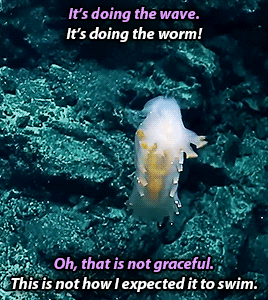
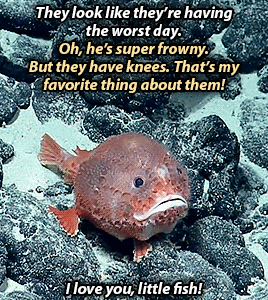
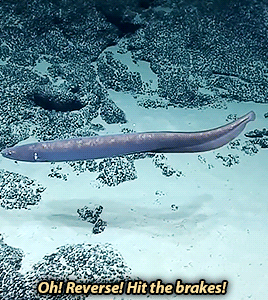
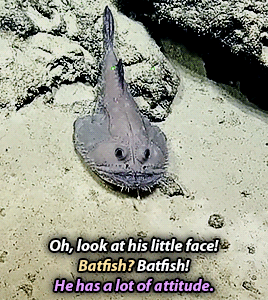

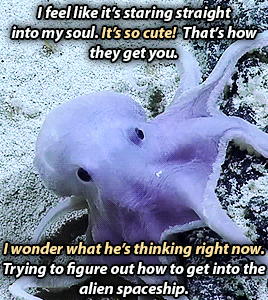
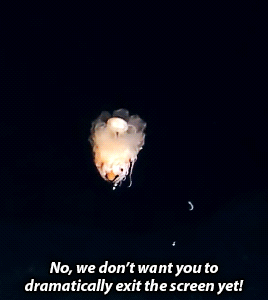

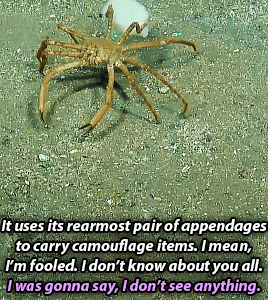
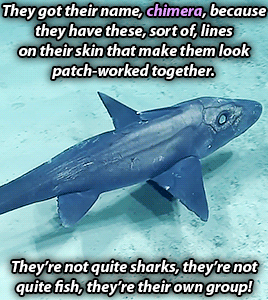
Nautilus expedition live streams (+ their commentary)
2020 / 2021 / 2022
#ev nautilus#nautilus live#marine biology#sea creatures#ocean animals#marine animals#works#HI THERE AGAIN#LOOK AT THESE LITTLE GUYS#I love them so much!!!#talented brilliant incredible amazing show stopping etc#remember when I made gifs of the older streams#I never know how to tag these though
69K notes
·
View notes
Text
honestly i'm really happy for the final four, i think that outcome was the best for all of them
#wilf was clearly struggling with all the guilt he was feeling and he *did* say he was losing the money to three lovely people#hats off to him though he played a brilliant game#that 'you're a dickhead but i love you' comment from aaron was the best HDGDJDKDVFK#hi i know i haven't posted about this show at all but i have been quietly watching on the edge of my seat#the traitors#roisin chats
48 notes
·
View notes
Text
Uh Oh! Something Bad Happened and Now I Understand WandaVision
it feels Bad
#wandavision#wanda maximoff#mcu scarlet witch#i'm serious though this show is so different now#what a brilliant piece of media#to shift and change like that
13 notes
·
View notes
Text
oh. my. god. i just finished the woman called fujiko mine and it was incredible. i’m trying so hard not to sound like an excited fan at a concert but that was genuinely one of the best anime i’ve ever seen? i literally went through the last 5 episodes of it today and when it got to the end card i was sitting there awestruck thinking “what? that was it?”
with other anime and shows in general i’m super conscious of the runtime, so while i’m watching i keep checking to see how much of the episode is left, but with this anime… ugh it felt like every episode sayo yamamoto knew she had 20 minutes and DAMN did she use those 20 minutes!
#tag: lupin iii#i’m watching this person’s review on the show that i’ve been super curious about ever since before i started it#because i was surprised that people felt really mixed on the ending#i don’t feel ready to type out my own thoughts properly yet cause i just finished it and also i’m low on spoons#but i will say i just think it’s really brilliant#though i don’t want it to be a sh2 situation where you can take any fault with it and turn it into something that makes it perfect
19 notes
·
View notes
Text
Go watch Poker Face. It's not gay, but it has Natasha Lyonne.
#poker face#natasha lyonne#absolutely hate the “please watch our show it has 100 celebrities!” knives out marketing bullshit though#it does not do such a well-crafted show justice#also there's no way the guy who wrote knives out wrote this. poker face is intricately brilliant and knives out was all around Bad
25 notes
·
View notes
Text
no but i'm fucking delighted w/ xie lian as a protagonist. by all rights he should be a fucking insufferable mary sue but instead he just spends the entire first arc going "guys... guys please. c'mon guys :/" while being entirely fucking ignored & getting passive aggressively hatecrimed for being hot and gnc & going 'aw yikes these people are fucking weird. wait shit i shouldn't say that out loud.' & trying 2 protect women... hes a good guy. i like him lots.
#putting him in my pocket... also im genuinely fucking obsessedddd w/ mxtx's writing style it's so enjoyable & visual. it reads like i'm#watching a comedy show in the best & most complimentary way possible even though it's just a translation. the translators r fucking#brilliant as well tbh.#tgcf lb#okay. gonnatake a showerrr n go sleep <33
38 notes
·
View notes
Text

“What, is someone more experienced taking dresses off people, instead?”
#sp k2#kenny x kyle#kyle broflovski#kenny mccormick#In which Kenny is blatantly hitting on Kyle constantly and getting nowhere#The princess enjoys the blush though#Kyle's a bit of an idiot when it comes to people's interest in him#You have to be extremely forward or just outright state your intentions or it's going right over his head#He's both brilliant and a bit of a dork#Plus very prone to believing he's seeing things when someone he likes is showing interest#Like here where his childhood friend asks him to button up her dress#Totally platonically Kyle good job excellent at romance
40 notes
·
View notes
Text
Farscape as a Representation of the Internal Movements and Knight of Faith in Kierkegaard’s “Fear and Trembling”
So I actually wrote this as my midterm essay for my Existentialism class (embarrassing) but I had been considering writing something about it anyways and there’s so little meta or academic analysis of the show out there I figured I’d post it regardless. I don’t know if anyone besides Wren is going to be interested in it but because I wrote it for school it is written to be readable for someone who’s never seen the show, so if you like my writing or my BTVS analysis and want to hear more about the show no one’s heard of that I never shut up about you could definitely read it. There are pretty major spoilers for most events in the story but unless you’re in the middle of watching it or planning to watch it in the immediate future I don’t mean that as a deterrent. I just really love the show, and I don’t really think Kierkegaard was a conscious influence (though who knows), but I think that it proves how philosophically sophisticated the series really is and how brilliantly they develop and portray the abstract themes he presents. That’s all! I’m hoping I can get back to writing about TV on here soon. If I’d written this for Tumblr it honestly would have been a lot longer and better developed, but for now this is what I’ve got.
Farscape was an Australian-American space opera which ran from 1999 - 2003 and follows the human astronaut John Crichton after he’s launched into deep space through a wormhole while conducting an experimental mission. In many ways the show was written in response to prevailing trends in contemporary science-fiction television, particularly the genre of military sci-fi. This is seen most notably in the series’ villains, a dogmatic military state called The Peacekeepers, as well as in the romance between John Crichton and ex-Peacekeeper Aeryn Sun, which dominates the narrative of the show, and perhaps most of all in Crichton’s character itself, which was written as a subversion of the traditional male action hero. As a scientist and a pacifist, John is generally incompetent in most areas that a protagonist of the genre is expected to excel. Noting how rarely characters in television display the full prolonged emotional effects of their circumstances, his character arc centers on the repercussions of trauma and reexamines the role of the hero in light of the brutal emotional consequences which inevitably come with struggling to be good in a universe dominated by war, violence, and cruelty. His heroism is instead reflected in his empathy, compassion, integrity, and resilience as he struggles to retain his identity, sanity, and values in the face of impossible decisions and their subsequent psychological toll. All of this makes the series a perfect vehicle for the ideas expressed in Kierkegaard’s Fear and Trembling, particularly the internal movements and the knight of faith.
Kierkegaard believed that the universe is absurd and chaotic, and that the best we can do in the face of this chaos is to believe that what we’re doing has meaning, even if we are given no reason to do so. He calls this “existential faith,” and considers its creation to be the greatest and most difficult thing a person can accomplish. Kierkegaard’s process of ‘becoming’ in creating existential faith is laid out in three stages of existence and two internal movements. We begin by watching life from the sidelines, but if we want to truly live, we need to sacrifice our comfort and safety to fully engage with existence. This creates a movement towards what he calls the “knight of infinite resignation.” This person has engaged in life, but as a result they have become conscious of the meaninglessness and pain that comes with living, and consequently become stuck in their overwhelming awareness of the futility of existence. To move past this point requires a sacrifice of passivity towards life. If one is able to make this sacrifice, they will become a “knight of faith.” The knight of faith understands that there is no fundamental truth. They choose to engage in life, to feel and love in the face of crushing uncertainty, knowing that in this they are incurring pain and that their faith exceeds all rational thought. The knight of faith is unintelligible to everyone else because of the incredible absurdity of their choice, and their faith is accompanied by a persistent doubt, which is the “fear and trembling” to which Kierkegaard refers. Both John and Aeryn embody this knight of faith when they continuously risk pain and heartbreak to choose love and compassion in a universe which seeks to destroy those things at all cost.
Throughout the series, John repeatedly compares himself to Dorothy from the Wizard of Oz, ripped away from the relative simplicity of Earth into the literally alien world he now inhabits. In the final line of the first episode he addresses a voice recording to his father, telling him that “there's life out here Dad. Weird, amazing, psychotic, life… in Technicolor.” We might take this as the first step in the evolution of his consciousness, but John’s movement towards infinite resignation comes, very intentionally, in stages. The first season follows the tradition of shows like Star Trek, remaining fairly episodic with the continuing thread of the Peacekeeper threat. As the series progresses, this episodic format dissolves into a highly serialized and continuity heavy plot. The impetus of this change is the twentieth episode of the show when John endures prolonged torture in a memory probing apparatus called the Aurora Chair after a character named Scorpius learns that he was unknowingly given knowledge of wormholes by another alien race in a previous episode. John eventually escapes and the story appears to move forward. However, in the course of the following season we witness John’s slow but steady descent into madness as a result of a “neural chip” implanted in his brain by Scorpius, and come to realize with horror that the story never truly progressed past its twentieth episode, and that these events which seemed inconsequential initially have informed every moment of the show since they occurred. We don’t see the real fallout of the Aurora Chair until twenty four episodes later when John loses complete control and is repeatedly ‘possessed’ by Scorpius’ neural clone. In the worst of these episodes Scorpius/John murders Aeryn, and the episode ends with the realization that Scorpius has orchestrated the surgery in which John is attempting to get the chip removed. It closes on his screaming face after the communication portion of his brain is severed and he loses the ability to speak. This may be one of the most brutal and harrowing episodes in the television genre, but its haunting portrayal of total and absolute hopelessness corresponds to its name, “Die Me, Dichotomy.” This is the full extent of John’s resignation, on multiple occasions he even begs to be killed, but it also proceeds rebirth. Kierkegaard says: “The infinite resignation is the last stage prior to faith, so that one who has not made this movement has not faith; for only in the infinite resignation do I become clear to myself with respect to my eternal validity, and only then can there be any question of grasping existence by virtue of faith.” This is the dichotomy that is referenced in the title. It is the barrier between terror and hope, loss and love, and death and rebirth, the moment of absolute resignation before the advent of faith.
The third season of the show begins these movements towards faith on the part of both John and Aeryn. Aeryn is revived in the next episode and though John never fully recovers from the neural chip, living with a ghost of the Scorpius clone in his head for the remainder of the show, he is able to reclaim his life and agency. At this point it may be pertinent to point out that although the John/Aeryn romance has been steadily progressing, with them admitting their love for each other at the beginning of the season, they are not in a relationship. This is in large part due to Aeryn’s resignation. Born and raised a Peacekeeper soldier, Aeryn continually struggles to overcome their dogma, particularly regarding vulnerability, emotion, and love as detestable weaknesses which should be repressed at all cost. Though she overcomes their rhetoric towards the inferiority of other species, the nobility of the Peacekeeper cause, and even their devaluation of compassion by the end of the first season, saying that “everything I lost isn’t worth a damn, and I don’t want to go back to your past,” she continues to struggle in her relationship with John. She follows her love confession by saying her “Peacekeeper training was right about one thing - soldiers and emotional attachments. In battle they distort your thinking.” This specific aspect of the Peacekeeper belief system is most difficult to overcome, not as a reflection on Aeryn’s incapacity for emotion or love, but as a testament to the rationality of her fear. Much of Aeryn’s journey is best described by Kierkegaard’s “teleological suspension of the ethical,” which refers to one’s ability to transcend societal norms and values in pursuit of a higher individual purpose or belief. This idea is perfectly embodied in Aeryn’s rejection of the values instilled in her since birth after realizing that they don’t reflect her beliefs as an individual. However, this particular aspect of those beliefs remains a struggle because they’re so personal. She has legitimate, rational reason to conclude that most aspects of Peacekeeper dogma are wrong, but everything seems to point towards the validity of the belief that emotion is dangerous. This is where faith becomes important. She makes her first movement towards faith at a moment where John is facing imminent death from the sentient spaceship she’s mentally connected to. She tells the ship, “I want you to share something with me. Before he dies. You can taste something that is denied to Peacekeepers. Something that you will never know. … that is what it is to need someone.” This admission is more profound than her love confession because in professing her dependence on John she’s revealed a critical weakness and made herself vulnerable to attack. To love someone is one thing; to need them takes a far greater degree of courage. It’s even more significant given how she implies that this need was something that was denied to her by cultural norms. She admits this knowing that John might die in the next few moments, making her sacrifice in one massive roll of the dice on the faith that he will be given back to her, and he is. In a later scene she says, “My life has been filled with doing what others think is right. For me - for now. This is right,” before going to initiate her relationship with John. In this she exhibits both a teleological suspension of the ethical and a movement of faith when she disregards all reason to pursue her own desires and values.
Early in the third season John is doubled, in that his character is literally duplicated into two separate but equal Johns, which are subsequently split up, one going with Aeryn on another ship and one staying with the remaining characters. Around halfway through the season the John whom Aeryn saved on the other ship dies while trying to stop another villainous alien species from obtaining wormhole knowledge. The following episode, “Revenging Angel,” sees the other John somewhere between life and death after he’s almost killed by one of his friends. The contrast between these two episodes perfectly constitutes the differentiation between the knight of faith and the tragic hero. The episode where the first John dies is called “Icarus Abides,” precisely because John finally gets everything he’s wanted: the Scorpius neural clone is removed from his head, he obtains the ability to travel back to Earth, and he gets Aeryn’s agreement to go with him. At exactly the moment that he succeeds, he is forced to sacrifice himself to prevent what would essentially amount to intergalactic nuclear holocaust. Kierkegaard makes a distinction between the knight of faith and what he calls the “tragic hero.” The tragic hero sacrifices the personal for the universal. Their sacrifice falls within the realm of the ‘ethical’ and benefits the greater good. This is what we see with the John who dies in “Icarus Abides.” Aeryn asks him “So it’s your life for everyone else’s?” concisely embodying the sacrifice of the tragic hero. The John in “Revenging Angel” is involved in a purely personal struggle; this is the key distinction. As Kierkegaard puts it: “The tragic hero renounces himself in order to express the universal, the knight of faith renounces the universal in order to become the individual.” The episode takes place predominantly inside his head as he’s comatose while the Scorpius neural clone attempts to convince him that revenge is the only emotion strong enough to bring him back to life, and John repeatedly insists that his loving Aeryn should be enough to save him. The lack of objective heroism in his struggle here is made clear as he looks down at his own gravestone which reads “Here lies John Crichton. Human. Astronut. Natural born loser.” “Astronut” is a nod to the cartoon motif which runs through the episode, further highlighting the absurdity of the conflict and extrapolating John’s attempts to hold on to his past identity, as well as belittling that same identity and mocking his enduring struggle to cling to his sanity. What sets this John’s struggle apart from that of the tragic hero is its unintelligibility. Scorpius tells John that he doesn’t understand and John responds “Of course you don’t understand. You live in the country but you do not speak the language.” He once again prompts John towards revenge and John tells him “For you it’s a way of life. For me it’s not the answer.” Scorpius is incapable of comprehending John’s choice because it transcends the attitudes of the wider universe and stems solely from his internal, existential faith. He remains resolute in his convictions that his love of Aeryn, even though she’s not there, even though she essentially left him behind, is enough to save him, and like Aeryn, he’s proved right. He is able to reject Scorpius’ message, which stands in for a larger cultural norm, because he is able to recognize that it doesn’t reflect the person that he wants to be.
This same episode also positions John’s heroism within the whole of the story and addresses his own teleological suspension of the ethical. Scorpius’ obsession with wormholes comes from a very legitimate fear of what would happen were the “Scarrans” to get access to them. This is in fact the exact thing that the other John dies to prevent. However, Scorpius comes from a place of vindictiveness and revenge, which has twisted him into a cruel and unscrupulous monster. There is no line that he will not cross to achieve his ends, without hesitation or remorse. This is why he serves as a foil to John, at once representing the attitudes of the wider universe which live within him, and his refusal to succumb to them. Kierkegaard makes clear that the knight of faith and the teleological suspension of the ethical are defined by dread. He explains that the knight of faith is separated from someone who acts outside the boundaries of the ethical with confidence, “by the fact that he knows how to speak with dread and trembling.” It may be worth pointing out that while in literary terms and in the eyes of the audience, John is a hero, he is not viewed as a hero within the world of the story. He’s generally despised by most everyone outside of the core group of characters. In one scene a character lists erroneous rumors about his exploits, saying “Guy was a devil.” Whether or not the rumors are true, they reflect his position as public enemy number one, hated not just by the villains of the story, but by most people who have heard of or come into contact with him. The fact that the version of his character who does fulfill the role of the tragic hero dies, while the knight of faith version lives on, further exemplifies this. In “Revenging Angel” he tells Scorpius that “I don’t want to be like other people. I don’t want to be like you. I don’t want to stoop that low. Kirk wouldn’t stoop that low,” but when Scorpius points out that Kirk was “savage when he had to be,” John says “He’s a fiction [...]. I know the difference. I’m real. I have to live with what I do.” In another episode he states that “I am not Kirk, Spock, Luke, Buck, Flash, or Arthur [...] Dent.” He is not the traditional hero and this is in large part because he “has to live with what [he does].” Although he too is “a fiction” he was written with specific attention to the realistic fallout of his actions. John is never sure in his decisions, and this is what marks him as a knight of faith. At points John feels as if he kills everything he touches. In one instance he says “everything I do just makes things worse,” and in another “I am so much better dead [in reference to his tragic hero death].” At points he makes decisions that fall into the realm of moral ambiguity as a lesser of two evils, but as an audience we don’t question his personal character or values specifically because we see his dread and reluctance before he acts, and his grief and remorse afterwards. No one applauds these acts. He carries the emotional burden of them just as he endures people’s disdain. This is precisely what Kierkegaard talks about when he talks about teleological suspension of the ethical; it is what sets him apart from Scorpius and wins the respect of the viewer.
This is extrapolated further when the show stresses the fact that John’s values are not only in conflict with the alien world he now inhabits, but with Earth as well. In “A Human Reaction,” an episode roughly three quarters of the way through the first season, John seemingly returns to Earth. This is later revealed to be a kind of simulation, however, this trip may be one of the first markers in John’s movement into infinite resignation. Upon his return he is immediately taken into military custody and met with unexpected hostility. The situation turns very bleak when some of the other characters follow him down and it becomes clear that the military intends to kill and dissect them, though they refuse to admit it outright. John reminds them of how long humanity has searched for alien life, saying “and as soon as they get here, look at what you’re doing! They can help us. Just take a step back and look at what you’re doing. You think about it.” When he’s told that they’ve “thought of everything,” he responds “you make me sick.” Aeryn tells him “you know Crichton, Peacekeepers wouldn’t even kill their prisoners to study them,” and later, pointing a gun at him, she asks “Are you with me, or with them?” to which he responds “I’m with you, Aeryn.” Despite John’s relentless drive to return to Earth, and despite the fact that at this point he’s only known Aeryn for a few months, he chooses her over his own people because he cannot abide by their choices. Before he is a human, he is an individual with individual values and when humanity contradicts those values, he distances himself from humanity. When John is finally able to truly return to Earth four years later, he arrives at much the same conclusion. On top of being irreparably changed by his experiences, he finds Earth to feel exceedingly small. Once again, humanity is unable to see past themselves. Instead of looking outwards to the wider universe, or realizing the insignificance of Earth within the whole of existence, or even realizing what unites them as a species, they are able to focus only on how these developments will affect the same wars and international disputes relative to Earth. Their first thought is, just like all the other villainous alien races in the story, of war. Farscape takes care not to exclude humanity from the cruelty, brutality, and selfishness of the wider universe which John rejects. His compassion is not a result of where he comes from; it is a conscious choice he makes based on nothing but his own convictions.
His relationship with Aeryn is further shown to be outside the confines of the ‘ethical’ in both spheres, Peacekeeper and human. Aeryn was forced to flee the Peacekeepers after being sentenced to death when she was “contaminated” by another species. This “contamination” occurred during the span of several hours in which she was taken prisoner with John. The sentence comes after she tries to keep John from being executed for a crime he didn’t commit. Peacekeepers are further implied to have dogma akin to eugenics, when Aeryn says “it’s ingrained in Peacekeepers from birth that we must keep the bloodlines pure. Such unions [interspecies] are evil.” The word “evil” stresses how far against Peacekeeper ethics their relationship truly extends. Again, Earth is not exempt from this. In an episode after they’ve left Earth John watches a TV show documenting the events of his return called “Alien Visitation.” At one point several people comment on the perceived, though unconfirmed, relationship between Aeryn and himself. While a few people do speak in favor of the idea of interspecies relationships, another states that “If you thought children of race-mixed parents took abuse at the hands of other children, wait until one is born with tentacles.” Another person, more positively asserts that he doesn’t see a problem with their relationship and that “If they're in love - they're in love!” This, along with a scene in which John’s father asks Aeryn if she has feelings for John and she responds “Does that shock you?” implies a comparison between attitudes towards their relationship and a same sex relationship. Gay marriage was still widely illegal in the United States at the time that the series aired. Interracial marriage had only become legal a little over three decades before. The series makes these comparisons not only to stress how John and Aeryn transcend the ethical in their relationship, but to remind us that humans are hardly better in their ‘ethics’ and offers hard, non-fictional evidence to prove it. All of this might be best summed up when one of the narrators asks “These are now the issues we grapple with. How much to trust? How open do we allow ourselves to become? Do we view an alien commingling of our gene pool as a favorable step towards integration into a larger community? Or as a threat?” In saying this she sums up John and Aeryn’s enduring struggle. These are the issues they grapple with, that they have struggled with for the entire show: How much to trust? How open do they allow themselves to become? Are they making the right decision? Are they in the right at all? Or are they just opening themselves up to further threats? What makes their choice reasonable or justifiable when it goes against the values of the universe and existence at large and may backfire on them at any moment? The teleological suspension of the ethical in their personal values and in their relationship are inextricably linked, if in nothing else, in their uncertainty. Kierkegaard says in regards to this, “one knows it for the great knows its terror–and apart from the terror one does not know the great at all.”
This same terror is essential to the remainder of the show, because what Farscape does most effectively is emphasize the horror and absurdity of faith. Aeryn, at a particularly bleak moment, describes a story she was once told about a goddess who was worshiped by six worlds, but one day, without warning, rose up and destroyed all of them. She says that as the last person was dying he asked the goddess why she destroyed them when they gave her everything, and that the goddess looked down on him and said, “Because I can.” This illustrates the true nihilism of the universe in which John and Aeryn maintain their faith; a universe governed by those with power, exercising it in whichever way pleases them without any regard for who they hurt or why. Kierkegaard says about “greatness,” “people are curious about the result, as they are about the result in a book–they want to know nothing about dread, distress, the paradox.” Farscape manages to overcome this attitude by effectively destroying the expectation of the happy ending. When John and Aeryn make their sacrifices, the audience expects it to pay off, and the show cuts down this expectation repeatedly. Aeryn makes her initial movement of faith in starting a real relationship with John, but then John dies. John makes his real movement of faith at the end of the season when, after three years of struggling to find his way back to Earth, he renounces Earth entirely to choose Aeryn. This scene in particular embodies the incomprehensibility of their sacrifice. John has repeatedly stated that his hope of returning to Earth is the only thing that’s kept him going, that “I have hope, or I have nothing.” When she asks him if he loves her, he responds “beyond hope.” In this he says that he chooses her, knowing that she might leave, and that he will be left with nothing. This epitomizes a movement of faith. However, Aeryn does leave, and John is in fact left alone with nothing. It is not enough for John and Aeryn to make the movement while the sacrifice is abstract. If they are to remain knights of faith they need to understand the full extent of the choice that they are making and what they risk in the process on a visceral and immediate level.
This brings up another point of Kierkegaard’s, that “What Abraham found easiest, I would have found hard, namely to be joyful again with Isaac; for he who with all the infinity of his soul [...] has performed the infinite moment [of resignation] and cannot do more, only retains Isaac with pain.” Though Aeryn gets John back, she is too shattered by the initial loss to be with him again. At one point she says “I just can’t watch that [his death] happen again,” and when John, in attempting to make her stay, tells her that “it’s not too late” she responds “No, you’re not listening to me! It’s too late for me!” She returns to infinite resignation, unable to commit to loving him if it means she would have to suffer through the pain of losing him again. She tells John, “You said once it was as if the fates meant for us to be together […] then we will be together again,” and John, proving exactly why this is a movement of infinite resignation and not faith in fate, responds that “Running away is not fate, Aeryn. Running away is running away.” In their time apart she makes her movement of faith again, at some point which we do not witness, and returns, but now John is the one to return to infinite resignation. He sees his neural clone take Aeryn’s shape, dressed in Scorpius’ suit with Scorpius’ face. In her abandonment, she loses his trust in her, and he begins to fear that she’s just another alien trying to destroy his sanity. Although he is still very much in love with her, that terror is extremely real, and he’s forced to ask himself how he can be sure that she won’t abandon him again. How can he be sure that she loves him? How can he be sure that she won’t use his love against him? This of course is the crux of the paradox of faith. He can’t be sure. He can never be sure. That is exactly the point. “Without risk,” Kierkegaard says, “there is no faith.”
Kierkegaard says of the knight of faith: “he has comprehended the deep secret that also in loving another person one must be sufficient unto oneself.” John proves he’s made this movement when he tells Aeryn that Scorpius can’t get to him because “he does not understand me.” He tells her “You’re the key, my achilles, you. If he figures that out the world and all that’s in it is nothing.” He makes the same sacrifice that he did the first time, in understanding that if he loses her, he has nothing left, and enduring that knowledge. In this case it couldn’t ever be mistaken for a desperate bid to get her to stay. It is a real choice, his choice, to sacrifice control for faith. When it’s tested again and Aeryn is kidnapped, because, as Kierkegaard says, “he is constantly tried, and every instant there is the possibility of being able to return repentantly to the universal,” John does not flinch. When asked when he’ll give up looking he responds “I don’t,” and when refuted with “Well, you have to give up sometime,” he replies, simply, “No. I don’t.” In the same way that John’s trial is repeated, Aeryn is also forced to endure what she previously found unbearable when John dies once more near the end of the show before being revived, but this time she doesn’t run away. Both are confronted with their worst nightmare once more and both are able to hold fast in their faith. They have decided that it is enough to love, even if that love is not returned, or is turned against them. Against all reason, “by virtue of the absurd,” they make this choice. This is the culmination of their struggle over the course of the story, and it’s how the show manages to end happily without undermining the gravity of their sacrifice. Even as John and Aeryn end up together, we understand, and they understand, that the movement of faith is not a sacrifice one makes once, but again and again, that inevitably it will not pay off, and that one must live in spite of that knowledge; that “to live joyfully and happily every instant by virtue of the absurd, every instant to see the sword hanging over the head of the beloved, and yet not to find repose in the pain of resignation, but joy by virtue of the absurd–this is marvelous.” Kierkegaard tells us that “if I wish to preserve myself in faith I must constantly be intent upon holding fast the objective uncertainty, so as to remain out upon the deep, over seventy thousand fathoms of water, still preserving my faith,” and that “she was not a heroine, and he was not a hero, but both of them became greater than such, not at all because they were exempt from distress and torment and paradox, but they became great through these.” These ideas are what John and Aeryn illustrate beautifully through their incomprehensible bravery in the face of existence. Their struggle to resist the dogma of the Peacekeepers and the cajoling of Scorpius is ultimately the same struggle as that of their relationship, choosing love in a universe that favors hate, representing both the universal and the individual elements of the trial of the knight of faith, the reconciliation of the finite and the infinite.
#farscape#farscape meta#john crichton#aeryn sun#johnaeryn#meta#i did actually add a couple paragraphs that weren't in the version i submitted#there's a lot more to say but i was already way over the suggested length#but the show's just so brilliant#and if you like my btvs takes (though idk how many people still do at this point lkdjfs) and want to read this#it would make me very happy because this is my favorite show and the best show i've ever seen#and it gets no recognition for it
54 notes
·
View notes
Text
SHRINKING SEASON FINALE OMG I'M CRYING
#holy shit that was such an amazing show!!#i cannot WAIT for season 2!!#any show that ends with modern love is brilliant#grace at the end though??!#fucking hell s2 is gonna be interesting!#shrinking#shrinking apple tv#jason segel#bill lawrence
10 notes
·
View notes
Text
watching game shows is fucking brilliant but the body's family is looking at us weird because I've been swearing too much
2 notes
·
View notes
Text

cosplay goals, maybe even this year’s Halloween goals :)
#the maaaaask 😍#this is a brilliant comic series#still need to watch the show though 😁#the sandman#morpheus#lord of the dreaming
3 notes
·
View notes
Text
her: they're probably thinking abt other women
me: at the end of episode 52 of nv when everyone's saying goodbye, helios and drago talk abt hopefully the next time they meet they'll still be friends and be on the same side. when spectra shows up again in ms he tells them that yes they're still friends and on the same side, however when he comes back the brawlers are falling apart and dan has a link to magmel and is also generally being a Huge Jerk™, which might be an understatement. bringing back spectra during this arc was a brilliant idea bc other than being the writers' clear favourite, nv already set up parallels between dan and spectra and the contrast between how dan's acting and how even spectra of all people is actually disturbed and concerned by it shows how bad the situation has actually gotten.
#sometimes bakugan makes interesting writing decisions but bringing spectra back during ms? absolutely brilliant#like fanservice and obviously being the writers' favourite def played a part dont get me wrong#but its just so good it makes me feral#i decided itd be fun to watch the last few episodes of new vestroia and then move onto spectra's episodes in ms#and boy it was such a good fucking idea#i do find it funny how spectra keeps coming and going though like#the writers made him too op so he cant show up every episode lest the season end like 4 episodes after hes brought back#i genuinely dont think bringing back any other characters would have made as much of an impact#i love alice and ace but bringing back either of them as the darkus brawler wouldn't work as well#bc shun and marucho fill the roles that they would fill#ren maybe but like. he has far more to do with marucho compared to dan#spectra however is a former villain who did a lot of fucked up things and one of dan's strongest rivals#OH ID ALSO LIKE TO MENTION that after the brawl were spectra shows up. spectra immediately asks if dan is okay after that whole thing#it was only after dan plays it off and pretends its fine does he seem actually disappointed and leaves#idk i thought that was interesting#god bless when i get started i am incapable of shutting up i am. SO sorry#im just insane and having an autism moment dont mind me
5 notes
·
View notes
Text
closing thoughts on the owl house in the tags cus boy howdy do i have a lot of them
#the owl house#toh#solid 6.8/10#would’ve been higher if the wittebane narrative had a more solid conclusion (or even presence)#but disney gets the blame on that#gotta say#not a fan of big monster belos#a good example of the ‘big monster’ trope is the cluster from SU#it was scary because it was ALREADY a big monster and had the potential for it to be worse#belos here was ‘big bad and can’t get any worse’ which is a trope i’m more or less tired of#it dehumanised him. is what i’m trying to articulate#he was a mad king because of his religious and control complexes#because he had INVISIBLE control. not physical control#i think they didn’t know what to do with Belos here#which is a shame because he was a fucking brilliant villain for seasons 1 and 2#his conclusion wasn’t a show ruiner. but if i had known that he wouldve ended like this i never would’ve gotten into the show at all.#just felt like everyone got a solid conclusion except for the super cool religious imagery villain#tl:dr adored the post-battle scenes n after-credits scenes but very let down from the belos end of the narrative#i’m gonna miss this show though :’)
3 notes
·
View notes
Text
It's ok to admit there are some works you love too much to ever be satisfied with any adaptations without shitting on those adaptations.
#No I'm not gonna watch the Sandman show.#I do think Kirby Howell-Baptiste was a brilliant fucking casting choice though and I adore her#But I know bc Sandman was literally the comic that made me like comics that it's too important to me to enjoy the show#I'm glad I got talked out of getting a sleeve tattoo of the endless but it was on the table for a long time#This is also why I don't like wicked or the his dark materials show#If I had been 30 when the lord of the rings movies came out... Who knows?#post o' mine#I might see the Wicked movies but only to complain about them. The book is so dark. It's a meditation on failure and fascism.#The musical is like Mean Girls in Oz#Me literally doing the thing in the notes I swore I wouldn't do in the main post#Whoops
15 notes
·
View notes
Text
What an ending though "I'm not seeing your father's oncologist" does Harry know how his father died???? (I mean they probably said at the start of the episode honestly I have a memory of a fish)
#laura watches five bedrooms#she said it like she a) knew that harry wouldn't have known about the father's illness or b) mixed up oncology with like optometrist#I HOPE#It was such a well delivered line#great response#like she knows an oncologist personally or something#it's brilliant#i love this show#there's only three episodes in season 4 though???? is that because they just released 3 episodes early?#and the rest comes on the original air date of 21st?????#by 'the rest' i mean 4743553453 episodes#please never end#enough episodes to get me through till the newsreader season 2 please
2 notes
·
View notes